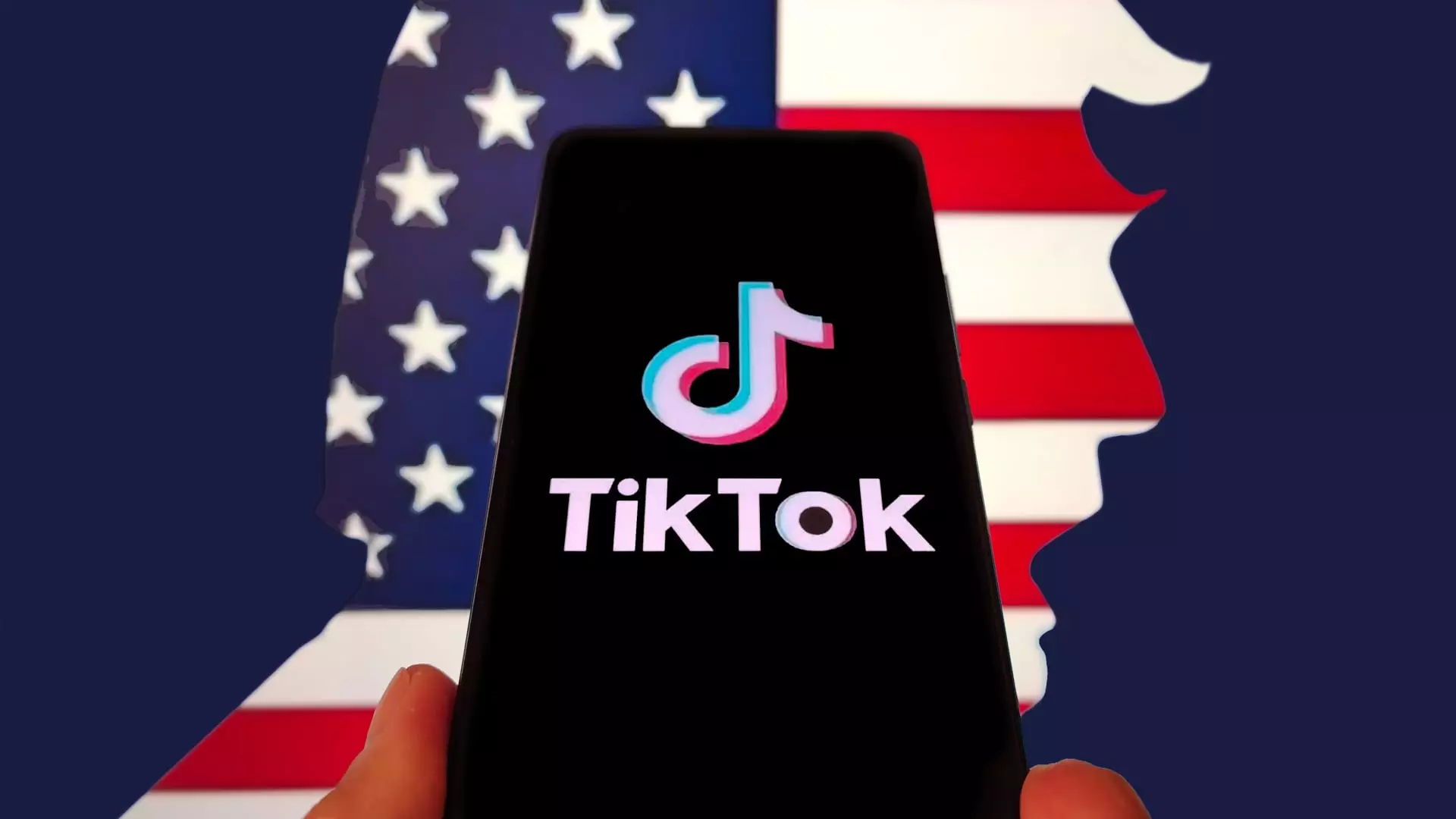In recent claims, the White House has presented its negotiated deal with China concerning TikTok as a monumental victory for American sovereignty, emphasizing that six out of seven board members will be American and that the platform’s algorithm will be under U.S. control. At first glance, this appears to be an empowering move to safeguard national interests. However, a closer, more cynical examination suggests that these assurances might be nothing more than political window dressing—a calculated attempt to mask the ongoing influence of corporate and geopolitical interests. The design of the deal seems to prioritize public relations over substantial change, raising doubts about whether any real sovereignty can be reclaimed in the ever-absorbing digital landscape.
The White House’s emphasis on “America first” conveniently glosses over the fact that dominant control of the algorithm remains a matter of contention. While officials tout the control over content curation, Matt’s real power resides in the invisible layers—algorithmic manipulation that is difficult to regulate or audit. This cloud of secrecy enables a potential continuation of data exploitation, privacy breaches, and misinformation, all while cloaked in the language of national security. Furthermore, handing the reins to Oracle—a corporate behemoth—raises questions about whether this is true sovereignty or an elaborate shift of power to U.S.-based tech giants who will benefit immensely from such arrangements.
A Puppet Show in the Political Theater
This recent development comes on the heels of a long saga where political leaders oscillated between outright bans and diplomatic negotiations, often masked as serious efforts to protect national security. Trump’s administration, for example, explicitly sought complete American ownership of TikTok, driven by fears of Chinese surveillance and influence. Yet, the subsequent political dance reveals a deeper truth: the interest isn’t entirely about security but about controlling cultural and economic influence wielded via social media. The colorful spectacle of America claiming victory over “foreign” influence sidesteps the reality of an entrenched system where corporate interests, major investors, and political narratives intertwine.
Trump’s frequent references to TikTok’s role in his electoral success and his fluctuating stance—initially threatening bans and later endorsing a “deal”—display how political rhetoric often conflates entertainment with genuine policy. The administration’s promises are as shifting as the platform’s algorithms, which are known for their opacity and their capacity to sway public opinion without transparency. Far from being a neutral force, the digital landscape remains under the shadow of corporate agendas that prioritize user engagement and data monetization under the guise of protecting national interests.
The Myth of “Control” in a Digital Age
Mastery over a social media platform in the 21st century is a complex illusion. The idea that America can “control” TikTok’s algorithm and data when these elements are inherently tied to opaque proprietary systems is naïve. Tech giants have historically demonstrated that control over algorithms, especially ones that influence millions, is more about shaping narratives and consumer behavior than safeguarding privacy. With the platform’s algorithm remaining under U.S. guidance, questions surface: will this truly limit Chinese influence? Or could it foster new avenues for domestic manipulation?
It’s also worth considering who these “American” board members are. The secrecy surrounding their identities fuels suspicion, as most major decisions within such tech companies are driven by economic interests that transcend national boundaries. Power, after all, is seldom as straightforward as board seats and algorithms; it is embedded within a matrix of financial influence, lobbying, and transnational corporate partnerships. This nebulous control leaves us questioning whether the so-called “victory” is a strategic misdirection—an Americanized facade meant to placate domestic audiences while the fabric of digital influence continues to evolve beyond the reach of straightforward regulation.
The Political Cost of Illusory Sovereignty
Even as political leaders trumpet this agreement as a success, it reveals a deeper societal malaise: the inability or unwillingness to confront the underlying issues of digital sovereignty and privacy. The spectacle of a deal that “puts America first” masks a reality where the core threats—data exploitation, misinformation, and foreign influence—are more entrenched than ever. These issues are not easily resolved by board seats or algorithmic oversight; they demand a fundamental rethink of how technology is governed.
Moreover, in a climate where corporate interests and geopolitical power are increasingly intertwined, such deals risk reinforcing a narrative that economic and military might are the primary means of control. This overlooks the vital importance of digital literacy, civic engagement, and policies that genuinely empower individuals rather than corporate entities. To believe that a relatively superficial ownership restructuring can stem the tide of global digital influence is both naive and dangerously complacent.
The true danger lies in accepting these frequent political gestures as victories while critical vulnerabilities—privacy breaches, algorithmic manipulation, and foreign influence campaigns—remain largely unaddressed. As long as corporate and political interests continue to merge and dominate the digital space, claims of American control will persist as hollow symbolism rather than meaningful action. The illusion of sovereignty in the digital age is fragile, and time will reveal whether this latest deal is a step forward or just another veneer of control covering mounting systemic vulnerabilities.


Leave a Reply